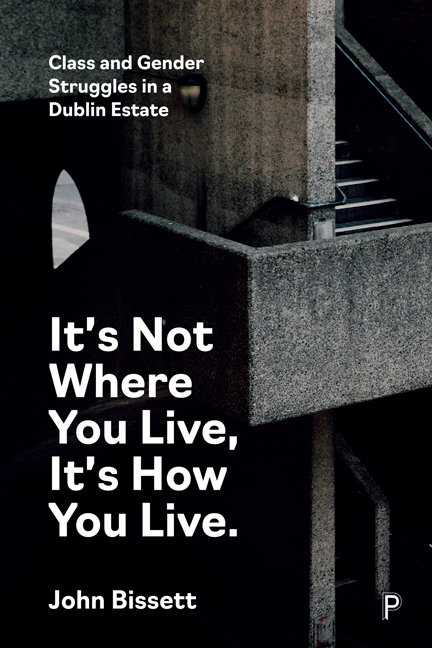13 - Class geography: part of no part
Published online by Cambridge University Press: 17 January 2024
Summary
Time indeed is indifferent to us, but we are not indifferent to it, and we are not indifferent to it because we move, for a duration, through it, making and being made in it. In this our explanatory consciousness of the past can inform our understanding of the present and illuminate projects and strategies for a future, shaped but unmade. (Bhaskar, 2009, p 219)
In the last part of this extended conclusion, we will return to the place that is the Bridgetown Estate that people move through over time, as suggested by Bhaskar earlier, in order to understand the importance of place for the residents, but also its relation to the larger (urban–national–global) space in which it is embedded. As Sayer (1985, p 60) forcefully reminds us, ‘Concrete research must take spatial into account even if it is not directly interested in it.’ There are important things about the estate as place that I want to address in this final chapter, and they include the following:
• The estate is simultaneously both part and no part of the geography of a classed city. It is a place embedded in segregated urban space. The ambiguous nature of the relationality between the part/whole estate/city is crucial to this conclusion. This is connected to the fact that the estate, and public housing in general, is mispresented through naming and nomenclature and what passes for ‘knowledge’, that is, through the use of terms and concepts such as ‘deprived’ or ‘disadvantaged’ or ‘socially excluded’ as opposed to what I am arguing for here, which is the real of classed and gendered places, spaces and cities.
• The estate has ‘historicity’ through time.
• The estate is a place of sensuous being and praxis.
These are conceptual distinctions, for in reality they form part of a totality between local–city, part–whole, agency–culture structure (Archer, 1988) and, not least in the last part of this final chapter, the phenomenology of place. The totality that is place and space is constituted by this dialectic or relationality. Just as there are relationalities of love and care, or those embodied in paid work between workers and bosses, there are also those that constitute the geographical and spatial dimensions of our lives.
- Type
- Chapter
- Information
- It's Not Where You Live, It's How You LiveClass and Gender Struggles in a Dublin Estate, pp. 118 - 129Publisher: Bristol University PressPrint publication year: 2023



